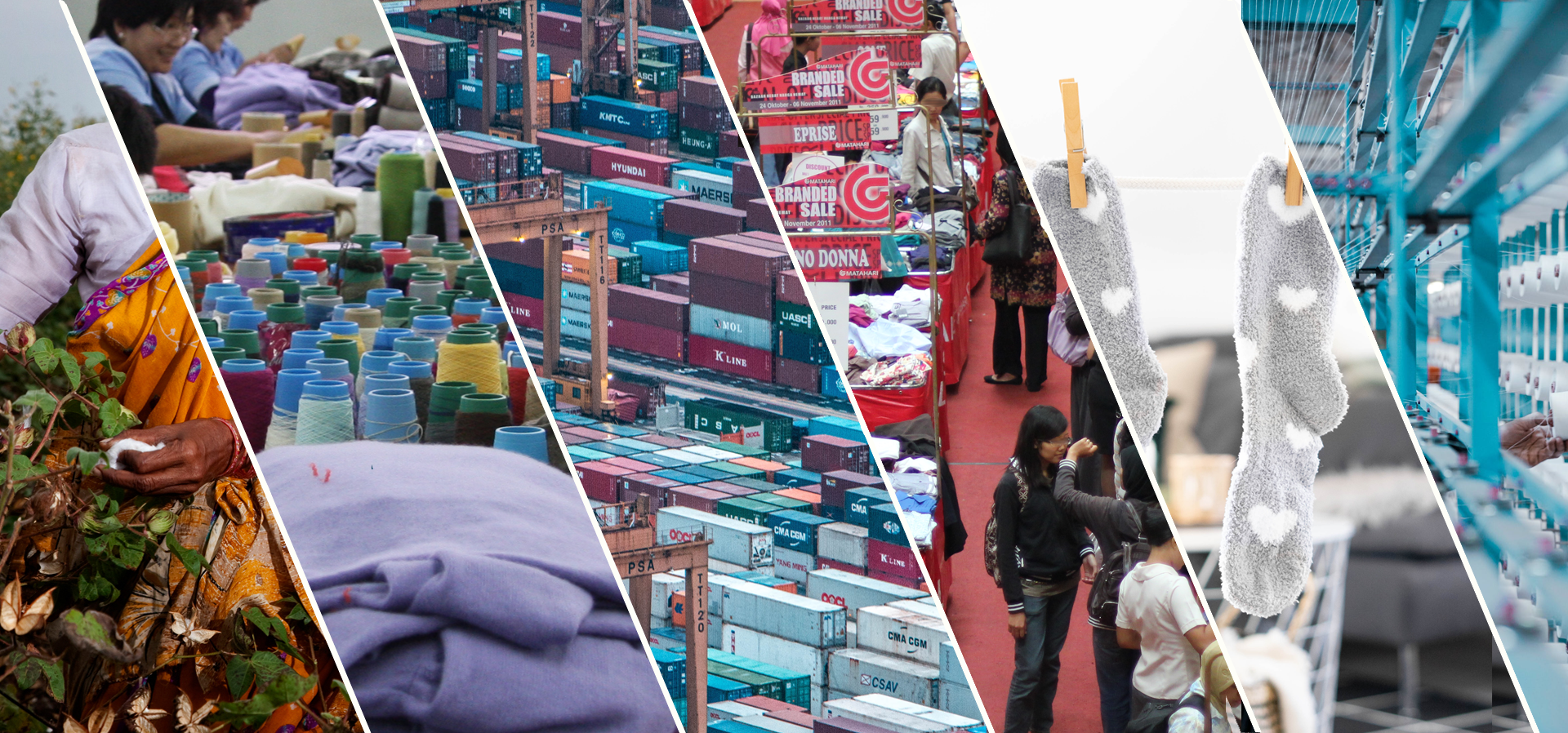A value chain is the full range of activities it takes to make, market, use, repair, reuse, remanufacture and recycle a product – value is added at every link in the chain. In global value chains, goods are consumed far from the locations where they were produced and mostly in a linear pattern of “take-make-use-dispose”. This linear production and consumption model is hugely wasteful of resources with adverse impacts on the health of humans, ecosystems and economies.
Multinational corporations in high-income countries usually lead most global value chains for a variety of goods from food to consumer goods such as electronics, apparel, shoes to higher value goods such as durable household goods, medical equipment and vehicles. Global value chain leaders have influence over their products in different stages of a product’s life span from research and development, design and materials selection, production, transport and distribution, use and end-of-life. Their suppliers located in developing countries more often than not lack the expertise, flexibility and financing to switch to circular products, unless circularity is a strategic objective of the value chain leaders.
Working in partnership, value chain actors can improve the circularity of their products. In this process, governments, financial institutions, civil society, and consumers also have important roles to play so that the benefits of circular economy practices implemented by businesses are fully realized.
During this event, the participants will speak from their perspective on how to switch to a circular economy in value chains and the types of targeted interventions that can help suppliers in developing countries overcome potential technical and financial challenges associated with this transition. The participants will engage in a dialogue about the trends in circular economy practices that can be adopted by businesses to help a just transition of the industry toward climate-neutrality, long-term competitiveness, and economic prosperity.
On this occasion, the UNIDO led, EU financed, global “SWITCH to circular economy value chains” will also be introduced.

